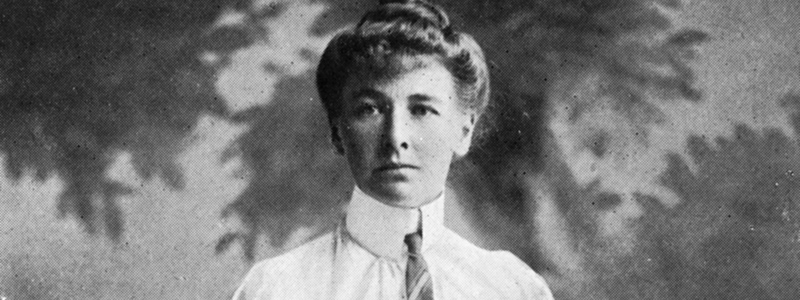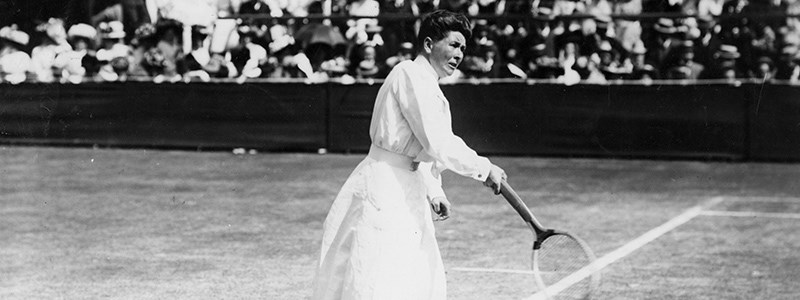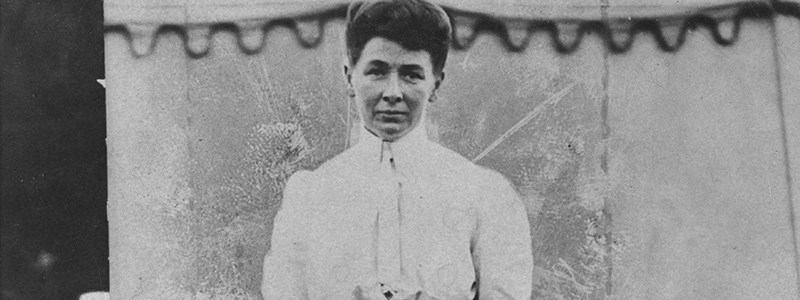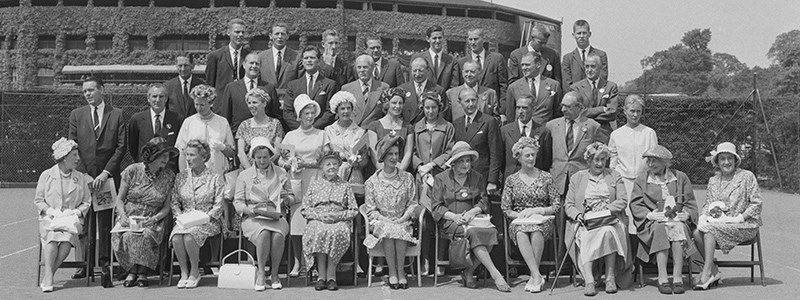
History Makers: Charlotte Cooper
• 4 MINUTE READ
At the 2016 Rio Olympic Games a record-breaking 5,049 female athletes represented their countries in competing for one of the most coveted prizes in all of sport – the Olympic gold medal.
With more records waiting to be smashed again this year in Tokyo, it’s time to look back and remember the athletes who paved the way for the future of women’s sport – including none other than Great Britain’s Charlotte Cooper, the first woman to win an Olympic gold medal in 1900.
Cooper was born in September 1870 in Ealing and from a young age developed a love for the game – regularly playing at her local club where she worked with several coaches to hone her talents. Known for her attacking flair, fast reactions at the net and for becoming one of the first female players to serve overhead, Cooper grew a fast reputation across the nation as one of the best players in the game.
Having won her first title at Ilkley in 1893, the young Brit set her sights on her biggest prize to date – the Wimbledon Championships. The history books say that Cooper used to cycle from her home in Ealing to Wimbledon for every match carrying both her wooden rackets on her back, ready to challenge any opponent.
It took Cooper only two years to win the first of her five Wimbledon titles, which would ignite an era of dominance from the British star at SW19. She defeated Helen Jackson Atkins 7-5, 8-6 in a closely fought championship match in 1985 and would go on to compete in eight consecutive finals up until 1902.

Adding to her five singles titles, Cooper was also renowned for her skills on the doubles court. Although it was not given full Championship status until 1912, Cooper dominated the Wimbledon mixed doubles. She won five back-to-back trophies with Harold Mahoney from 1894 to 1898, a sixth with Laurence Doherty in 1900, and then partnered Xenophon Casdagli to lift her seventh title in 1908.
However, arguably Cooper’s greatest and most historical achievement came in 1900 where she became the first woman to win an Olympic gold medal in Paris. This was the first time that women were able to compete at the Olympic Games and Cooper led the way for the British team defeating home favourite Hélène Prévost, 6-1, 7-5 in the final.
Off the back of her history defining triumph, Cooper went one better, winning another gold medal in the mixed doubles alongside the legendary Reginald Doherty.
Although medals weren’t actually awarded at the Olympic Games until 1904, Cooper would later be issued with both of her gold medals at a later date.

One of the greatest players of her era, perhaps the most incredible part of Cooper’s story is that she managed to achieve all these accolades having being declared completely deaf at the young age of 26.
In fact, after her Wimbledon title run in 1895, it’s said that she was never able to hear a tennis ball again and yet still went on to claim 12 singles and doubles trophies as well as the Olympic double.
This meant that not only was she the first woman to win the Olympic gold, but she was also the first athlete with a disability to be crowned an Olympic champion.
Her love and passion for the game became a family affair later in her life. In 1901 she married Alfred Sterry, who would later go on to become the president of the then Lawn Tennis Association, and both her kids would also pursue careers in the sport as well. Her eldest son, Rex, was the Vice-Chairman at the All England Tennis Club for 15 years and her daughter Gwen followed in her footsteps and played both at Wimbledon and for Great Britain in the Wightman Cup.

Adding to her long list of achievements, Cooper is one of only four women to have won the Wimbledon title after becoming a mother – lifting the singles title in 1908. At the age of 37, she was also the oldest female champion for over 90 years, until her record was broken by Martina Navratilova.
A trailblazer in the growth of women’s sports at the Olympics and one of Wimbledon’s all-time greats on Centre Court, Cooper passed away on 10 October 1966 at the age of 96, leaving behind a legacy that will live on forever.





